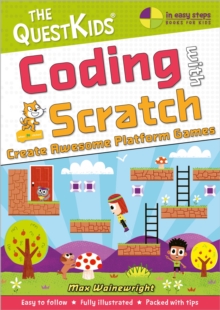Computer Science - Developing the Future
8th December 2023
When asked to write an article on Computer Science for Computer Science Education Week which takes place between 4th- 10th December, I thought it would be a good opportunity to talk about my personal journey, career paths available as well as emerging technologies.
Since I can remember, I have been interested in technology and especially any technology involving computers. When I was around 8 years old, my brother and I were bought our first computer, a BBC Micro Model B (BBC-B). It wasn’t new but it was still a computer and a great first computer. Even now, thinking about the BBC-B helps me to appreciate how quickly things have changed. It had a 5 1/4” floppy disc drive - which accepted floppy disks which really were flexible - as well as a cassette tape drive. No fancy user interface to make things easy!
Then Christmas 1995 arrived, and it was time for an upgrade to a ‘Multimedia PC’ which came in the form of an Intel Pentium 75MHz computer with 8MB RAM running MS-DOS, on which I could run the Windows 3.11 Operating System. I mention the RAM specifically because I later sold the BBC-B to upgrade the RAM to 16MB. I also upgraded the CPU to an Intel Pentium 133MHz and tweaked a ‘clock multiplier’ setting to run the CPU at 150MHz. Whilst I had this computer, I broke it a few times so remember having to feed the computer floppy disk after floppy disk to reinstall MS-DOS and Windows again. I learnt a great deal from this, and a lot of it was through trial and error with no Internet to have a quick search for answers on. Then came 1998 and I first connected using dial-up to the Internet with AOL Online which at the time was amazing; sewing the seed for unlimited possibilities, albeit slow possibilities as websites took forever to load!
Fast forward 25 years, the pace of technological advancement and change has continued to be immense, with £99 smartphones being substantially more powerful and useable than my first computer. Advancements have revolutionised how we access information, communicate and work - pretty much everything that we do and have access to. Advancements which wouldn’t have been possible without Computer Science and its foundations playing a major role.
Over many years, I have worked alongside people from all walks of life who are involved in Computer Science and technology related roles such as Software Developers, Data Engineers and Database Administrators as Computer Science does overlap IT in many areas in which I work. Computer Science continues to change and impact our lives especially with recent advances in Artificial Intelligence (AI) using Generative AI such as GPT-3 from OpenAI. From a short prompt, GPT-3 can create recommendation letters, draft emails and write an article in a matter of seconds (this article was not generated using GPT-3!). For image generation DALL·E 2, also from OpenAI, can generate multiple computer-generated images from prompts. These AI tools especially have a low barrier for entry and are very accessible, being available to the general public to test and use. Virtual Reality (VR) also continues to be a hot topic with many ongoing advances with the Meta Quest 3 and Apple launching their own VR headset, the Apple Vision Pro in early 2024 which will open up possibilities for new applications of technology and future job roles which haven’t yet being imagined.
In the future, especially within the realms of Artificial Intelligence, new positions will be created such as ‘AI Ethics Specialist’ roles to ensure that AI systems are deployed ethically and responsibly. There have been concerns, especially recently where some AI Face Recognition as well as healthcare algorithms have been found to have racial bias, so it is important with current and future developments in technology to ensure applications are inclusive and beneficial to all of society and are without prejudice.
With many new tools in the toolbox, it is a very exciting time in the world to explore Computer Science and get everyone, young and old interested in learning, but also to have fun whilst learning too. In July, I took my 4-year-old to a Lego STEM event where we were able to learn about and build a system to sense tickets being shown on a reader and indicate by a coloured light if admittance was granted. Although this was quite a bit advanced for a four-year-old (it was aimed at 6+), he really enjoyed playing with Lego and learning actions and reactions from what we had created. Other ways to introduce children to technology is through programming languages such as ‘Scratch’ designed specifically for children. Scratch is freely available online and developed by the Massachusetts Institute of Technology (MIT). Coding with Scratch: Create Awesome Platform Games is a book which guides children through creating fun games such as Banana Bonanza using Scratch.
In this week where we celebrate and educate about all things Computer Science, I want to stress that no matter what career children wish to pursue, that it is important to be exposed to technology and simple programming concepts at an early age in a fun way as that will help them to understand technology and Computer Science in our fast moving world and will offer them opportunities in many areas.
Chris, IT Systems Manager
Useful websites & book lists:
ChatGPT - https://chat.openai.com/
DALL-E - https://openai.com/dall-e-2/ (Title image was created with the assistance of DALL·E 2)
Quest 3 - https://www.meta.com/gb/quest/quest-3/
Apple Vision Pro - https://www.apple.com/apple-vision-pro/
AI Study - https://www.forbes.com/sites/ariannajohnson/2023/05/25/racism-and-ai-heres-how-its-been-criticized-for-amplifying-bias/
AI Healthcare - https://www.aclu.org/news/privacy-technology/algorithms-in-health-care-may-worsen-medical-racism
Scratch - https://scratch.mit.edu/
Browns Books for Further Reading

Coding with Scratch - Create Awesome Platform Games
Wainewright, Max
Paperback / softback
This book is the second in the QuestKids series, designed to make learning fun for children. It will teach kids how to create amazing platform games using Scratch, a free visual programming language developed by the MIT Media Lab.
More Details